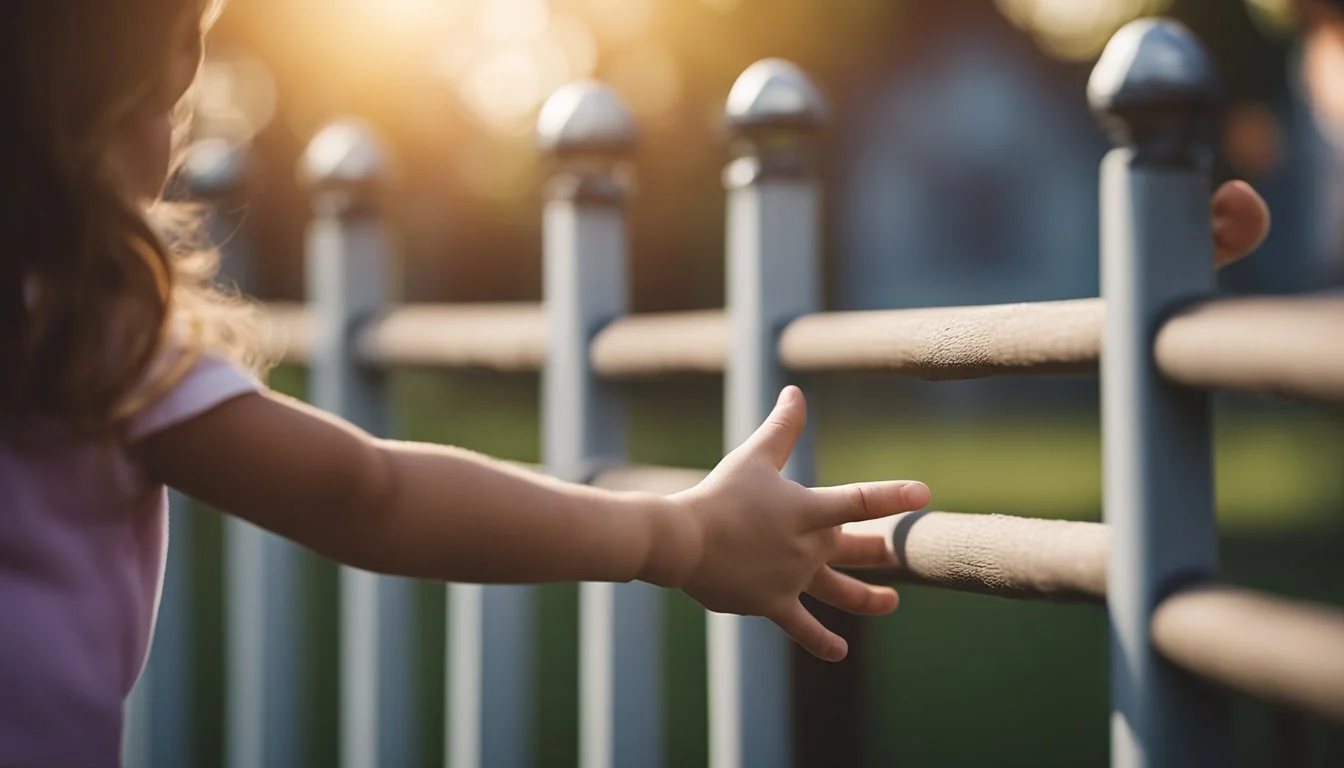9 Documentaries That Explore the Role of Love in Parenting
Insights into Family Dynamics
Documentaries about parenting offer unique insights into the complex world of raising children. These films explore the joys, challenges, and unconventional aspects of parenthood, providing viewers with a deeper understanding of family dynamics.
Love plays a crucial role in shaping parent-child relationships and influencing child development. Documentaries that focus on this aspect of parenting shed light on the powerful impact of emotional connections within families. They showcase diverse perspectives and experiences, allowing audiences to reflect on their own parenting approaches and foster empathy for others.
1) Won't You Be My Neighbor? (2018)
This documentary explores the life and legacy of Fred Rogers, the beloved host of "Mister Rogers' Neighborhood." Directed by Morgan Neville, the film delves into Rogers' philosophy of love and kindness in children's education.
The documentary showcases Rogers' innovative approach to addressing complex topics with young viewers. Through archival footage and interviews, it highlights his commitment to treating children with respect and honesty.
Rogers' emphasis on emotional intelligence and self-worth is a central theme. The film demonstrates how he used his platform to promote understanding and acceptance among children and adults alike.
"Won't You Be My Neighbor?" also examines Rogers' impact beyond television. It reveals his advocacy for public broadcasting and his testimony before Congress to secure funding for educational programming.
The documentary presents a nuanced portrait of Rogers, acknowledging both his public persona and private struggles. It offers insight into his role as a parent and how his own childhood influenced his work.
2) The Beginning of Life (2016)
"The Beginning of Life" explores the critical importance of a child's early years. This documentary delves into how a child's environment shapes their cognitive, social, and emotional development.
The film showcases the latest research in neuroscience and child development. It emphasizes that a child's growth is influenced by more than just genetics, highlighting the role of relationships and surroundings.
Experts and families from different parts of the world share their insights in the documentary. Their stories illustrate how early experiences can have lasting impacts on a child's future.
The film underscores the significance of love, attention, and positive interactions in a child's formative years. It demonstrates how these factors contribute to building a strong foundation for lifelong learning and well-being.
"The Beginning of Life" serves as an eye-opening resource for parents, educators, and policymakers. It offers valuable perspectives on nurturing children's potential from the very start of their lives.
3) Babies (2020)
"Babies" is a documentary series that explores the development of infants during their first year of life. The show follows 15 families from around the world, offering a global perspective on early childhood.
The series delves into various aspects of infant development, including bonding, cognition, and physical growth. It combines heartwarming footage of babies with insights from scientific experts in the field.
Episode 1, titled "Love," focuses on the biology of bonding between parents and newborns. It examines how caregiving and social interaction can physically change both the parent and the baby.
The documentary provides a unique blend of scientific research and real-life experiences. It showcases the universal nature of parental love while highlighting cultural differences in child-rearing practices.
"Babies" offers viewers a fascinating look into the rapid development that occurs during the first year of life. It demonstrates how infants progress from helpless newborns to curious, mobile toddlers.
4) Life Itself (2014)
Life Itself offers a poignant exploration of love through the lens of film critic Roger Ebert's life and relationships. The documentary delves into Ebert's deep connection with his wife Chaz, showcasing their enduring bond and mutual support.
Director Steve James captures intimate moments between Roger and Chaz during Ebert's final months. Their interactions reveal a profound love that transcends illness and adversity, highlighting the power of partnership in life's challenges.
The film also touches on Ebert's role as a stepfather to Chaz's children. It portrays his loving approach to parenting and the strong familial bonds he formed later in life.
Through archival footage and interviews, Life Itself paints a picture of Ebert's own upbringing. It explores how his parents' love and encouragement shaped his passion for writing and cinema.
This documentary serves as a testament to the transformative power of love in various forms - romantic, familial, and platonic. It illustrates how these connections can enrich one's life and leave a lasting impact.
More information on Life Itself
5) Parenthood (1989)
Ron Howard's "Parenthood" offers a heartfelt exploration of family dynamics across multiple generations. The film follows the Buckman family as they navigate the joys and challenges of raising children.
Steve Martin portrays Gil Buckman, a father striving to balance work and family life. His performance captures the anxieties and aspirations of many parents.
The movie delves into various parenting styles, from Gil's perfectionism to his sister's more relaxed approach. This contrast highlights the diverse ways love manifests in parent-child relationships.
"Parenthood" addresses serious issues like teenage pregnancy and learning disabilities with sensitivity. It also injects humor into everyday parenting situations, creating a relatable portrayal of family life.
The film's strength lies in its honest depiction of the complexities of raising children. It shows that while parenting is often messy and unpredictable, love remains the foundation.
More information on "Parenthood" (1989)
6) Motherland
Motherland (2016-2022) offers a comedic yet insightful look into the challenges of modern parenting. This British sitcom follows a group of middle-class mothers navigating the ups and downs of raising children in London.
The show explores the complexities of balancing work, family life, and personal relationships. It touches on themes of maternal love, friendship, and the pressures of societal expectations placed on parents.
Through its witty dialogue and relatable scenarios, Motherland sheds light on the often-overlooked aspects of parenthood. The series portrays the daily struggles and small victories that come with raising children in a humorous and authentic way.
While not a traditional documentary, Motherland's realistic portrayal of parenting provides valuable insights into the role of love in family dynamics. It showcases how parental love can manifest in unexpected ways, even amidst chaos and imperfection.
More information on Motherland
7) The Mask You Live In (2015)
This documentary explores the narrow definition of masculinity in American culture and its impact on boys and young men. Directed by Jennifer Siebel Newsom, the film examines societal pressures that influence male behavior and emotions.
The Mask You Live In features interviews with experts, educators, and young men. It delves into topics like sports culture, video games, and media representations of masculinity. The film highlights how these factors can lead boys to suppress their emotions and devalue authentic friendships.
The documentary also addresses more serious issues, including violence, substance abuse, and mental health problems among males. It suggests that societal expectations of masculinity contribute to these challenges.
Parents may find this film particularly insightful for raising sons. It offers perspectives on how to encourage emotional expression and healthy relationships in boys. The documentary aims to spark conversations about redefining masculinity in more positive ways.
8) The Armstrong Lie (2013)
The Armstrong Lie offers a compelling look at the rise and fall of cyclist Lance Armstrong. Director Alex Gibney initially set out to document Armstrong's 2009 comeback attempt.
However, the film took an unexpected turn when Armstrong's doping scandal erupted. Gibney shifted focus to explore the elaborate deception Armstrong had maintained for years.
The documentary features interviews with Armstrong himself, as well as teammates, journalists, and anti-doping officials. It examines how Armstrong built his heroic public image while secretly engaging in performance-enhancing practices.
Gibney's film provides an insightful analysis of Armstrong's complex motivations and the culture of professional cycling. It raises thought-provoking questions about the nature of truth, ambition, and public personas in sports.
The Armstrong Lie serves as a cautionary tale about the dangers of unchecked power and the consequences of living a lie. It offers a nuanced portrait of a fallen sports icon and the system that enabled his deception.
More information on The Armstrong Lie
9) The Elephant Queen (2018)
The Elephant Queen offers a poignant glimpse into the world of elephant parenting. This documentary follows Athena, a matriarch elephant, as she leads her herd across the African savannah in search of water and safety.
Narrated by Chiwetel Ejiofor, the film showcases the deep bonds between elephant mothers and their calves. Viewers witness Athena's unwavering dedication to protecting and guiding her family through harsh conditions.
The documentary highlights the sophisticated social structure of elephant herds, where older females play crucial roles in nurturing and educating younger members. This interconnected system of care ensures the survival and emotional well-being of the entire group.
Through stunning cinematography, The Elephant Queen captures tender moments between mothers and calves, demonstrating the universal nature of parental love across species. The film serves as a touching reminder of the powerful instincts that drive parents to nurture and protect their offspring.
More information on The Elephant Queen
Understanding Love in Parenting
Parental love forms the foundation of healthy child development and family relationships. It encompasses both emotional bonds and practical caregiving behaviors that nurture a child's growth.
Defining Parental Love
Parental love is characterized by unconditional affection, protection, and support. It involves meeting a child's physical and emotional needs while fostering their independence. This love is expressed through actions like physical affection, verbal praise, attentive listening, and consistent care.
Parents show love by providing a safe, stable environment and responding sensitively to their child's cues. Effective expressions of love adapt as children grow, from hands-on care for infants to emotional support for teens.
The Psychology of Love in Family Dynamics
Secure attachment between parents and children shapes lifelong relationship patterns. When parents consistently meet their child's needs, it builds trust and emotional security. This secure base allows children to explore the world confidently.
Family systems theory examines how love and other emotions flow between family members. Positive interactions create feedback loops that strengthen bonds. Conversely, a lack of warmth can lead to relationship distress.
Parental love influences a child's self-esteem, emotional regulation, and social skills. Children who feel loved tend to have better mental health outcomes and more satisfying relationships as adults.
Impact of Love on Child Development
Love profoundly shapes a child's growth and well-being. Parental affection and care create a foundation for healthy emotional and psychological development, influencing a child's ability to form relationships and navigate the world.
Emotional Growth and Stability
Children who experience consistent love and support develop stronger emotional regulation skills. They learn to identify and express their feelings in healthy ways, leading to better stress management and resilience. Loved children often exhibit higher self-esteem and confidence, feeling valued and worthy of positive attention.
Parental love also fosters empathy and compassion. Children who receive emotional warmth are more likely to show kindness to others and form positive social connections. This emotional intelligence carries into adulthood, supporting healthier relationships and improved mental well-being.
Fostering Secure Attachment
Secure attachment, rooted in loving parent-child relationships, is crucial for healthy development. Children with secure attachments feel safe exploring their environment, knowing they have a reliable base to return to. This security promotes cognitive development and curiosity.
Securely attached children often display better problem-solving skills and adaptability. They're more likely to seek help when needed and show resilience in the face of challenges. The trust built through loving relationships extends to future interactions, helping children form positive connections with peers and authority figures.
Love's impact on attachment influences long-term social and emotional outcomes. Adults who experienced secure attachments in childhood typically maintain healthier relationships and exhibit greater emotional stability.






